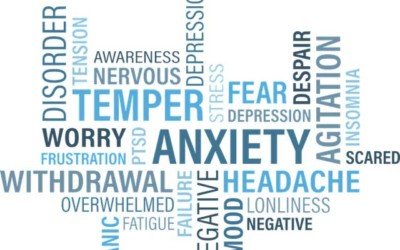When a friend or loved one suffers from anxiety, it can be intimidating or frustrating trying to help them cope. Panic and anxiety attacks can leave the anxiety sufferer feeling any number of symptoms, and you may feel helpless and unable to support them. Here are some tips to help you manage a loved one’s anxiety.
Listen
Let your loved one know that you’re there to listen. Hold back judgment or unwanted advice, and simply be an ear. It will help them to know that they can speak to you openly, and that it’s okay to be repetitive with fears or thoughts. Let them know that they can call or text you any time to talk.
Don’t Bring It Up Too Often
It might seem counter-intuitive to avoid the topic of anxiety with your loved one, but simply talking about anxiety or panic attacks may trigger an episode for someone who suffers with this disorder. It’s fine to ask how they’re doing or discuss their anxiety if they want to, but make sure that they bring the topic up to you.
Spend Time
Spending time with a close friend or loved one can be very beneficial for the anxiety sufferer. Exercise and outdoor activities are especially helpful; sunlight and exercise are well-documented mood boosters. If you’re both being entertained, are out having fun, or just hanging out talking over coffee, this meaningful distraction keeps their mind off of their anxiety and on the activity.
Be Patient
You may struggle to empathize with your friend or loved one, or you may have difficulty comprehending what it means to suffer with anxiety. Anxiety disorders are not just psychological, they’re also chemical. Your loved one may understand that it’s not logical for them to feel fear or anxiety about something, but you can’t expect them to control their anxiety with that same knowledge. It will take time and a concerted effort on their part, but anxiety is a treatable condition.
Recognize Accomplishments
Make an effort to express pride in your loved one when you notice improvements. Acknowledgement of positive change after they have put in some hard work will be both beneficial and encouraging to their recovery.
If you or a loved one is suffering with anxiety or panic disorder and needs professional guidance from a licensed therapist, please contact my office today so we can set up an appointment.

5 Ways to Cope with Anxiety as a Parent
The hard work and unpredictability that makes parenting so rewarding can also cause a great deal of anxiety. Here are some simple ways to bring yourself to a place of calm. Make a To-Do List Ruminating on worries can cause lots of stress. Clear your mind by making a...
4 Healthy Ways to Distract Yourself from Anxiety
Anxiety is a natural dialogue between our mind and body. It’s a red flag that something might be going on in our surroundings that requires our attention. For most of us, anxiety is an uncomfortable but fleeting feeling that pops up on occasion during particularly...
5 Foods & Beverages That Can Cause More Anxiety
Most people know that a healthy diet is important in managing weight and aging well. But what many people don’t realize is that the foods we eat can significantly alter our mood. While eating foods rich in protein, antioxidants and omega-3 fatty acids can help fight...
Quick! Get Your "Top Tips For Getting the Most Out of Counseling" Cheatsheet!
Like some of what you've seen and want to see more? Sign up for our Mailing List for a free cheat sheet on making the most out of counseling. Our list members also gain access to exclusive specials and announcements, as well as the latest from our Counseling Blog!





